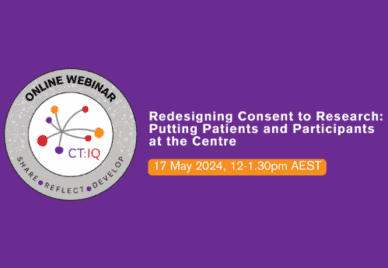
Redesigning Consent to Research: Putting Patients and Participants at the Centre
Go to partner eventabout Redesigning Consent to Research: Putting Patients and Participants at the Centre
The Australian Government’s National Collaborative Research Infrastructure Strategy (NCRIS) enables and supports strategic national-scale facilities that provide tremendous benefit to the Australian researchers addressing key national and global challenges effectively and efficiently. NCRIS facilities bring together collaborative equipment, resources, analysis tools and, importantly, expert people.
In Australia, there has been over a decade of bi-partisan government support for research infrastructure. This has created a strong, agile, efficient, and accessible national research infrastructure ecosystem able to drive and facilitate collaborations and accelerate research.
Research activities to address the challenges posed by COVID-19 are no exception.
Australia is at the forefront of the COVID-19 vaccine development with key researchers using institutional and national research infrastructures and cooperating with commercial providers to accelerate COVID-19 responses. For example, the Coalition for Epidemic Preparedness Innovations (CEPI) led vaccine development project at the University of Queensland and, the national science agency, CSIRO represents a systematic response that combines the efforts of national research infrastructure organisations including the Therapeutic Innovation Australia (TIA), Bioplatforms Australia (BPA), and CSIRO’s Australian Centre for Disease Preparedness (ACDP).
The rapid and collaborative response within Australia means CSIRO’s ACDP has already commenced the first stage of testing potential vaccines for COVID-19 and Queensland hospitals have started testing two potential treatments on patients with COVID-19 as part of an international clinical trial involving The University of Queensland.
The national reach and broad ranging capabilities on offer by NCRIS facilities to researchers working to understand and find treatments for COVID-19 are highlighted in the table below:
*ADACS is enabled by NCRIS via AAL
While the above list covers only a selection of NCRIS facilities, it demonstrates how national infrastructures are able to work in concert to address the full research lifecycle, providing powerful sets of tools for Australian researchers on the COVID-19 pandemic and other national and global challenges.
Visit the ARDC website for more information about our services and how to collaborate with us. The ARDC is here to provide researchers with a competitive advantage through data.